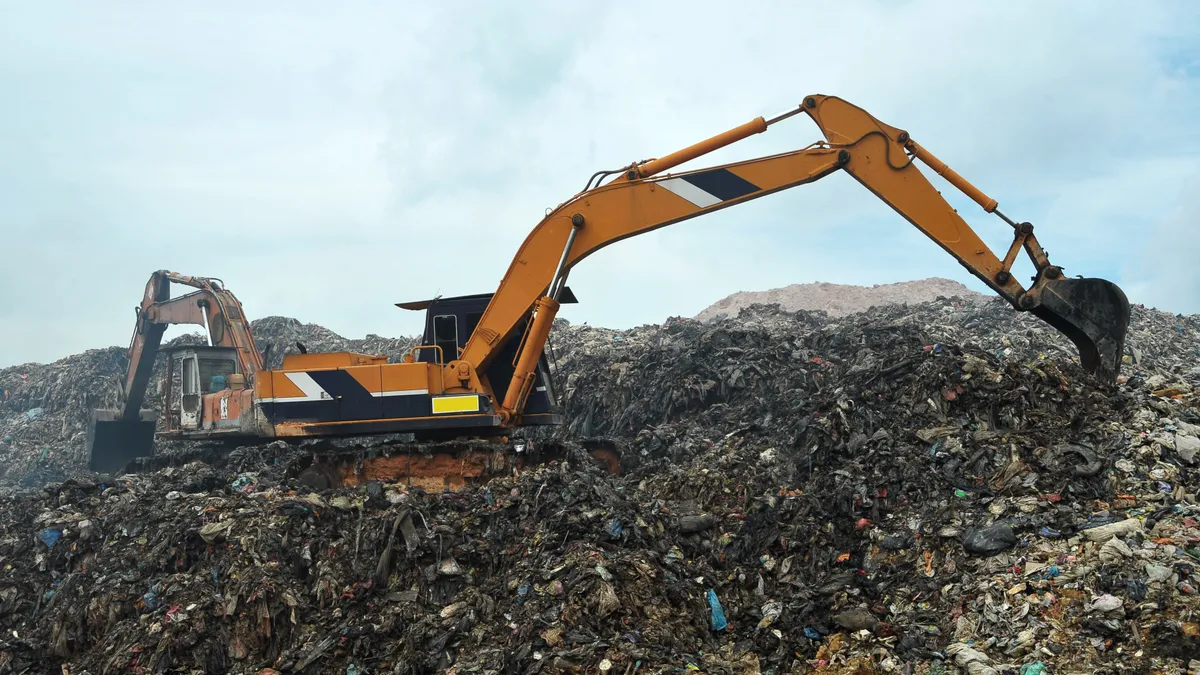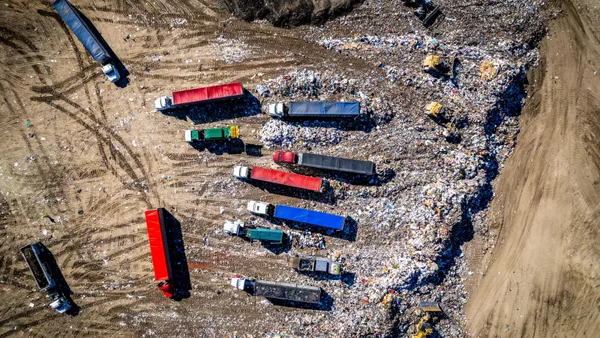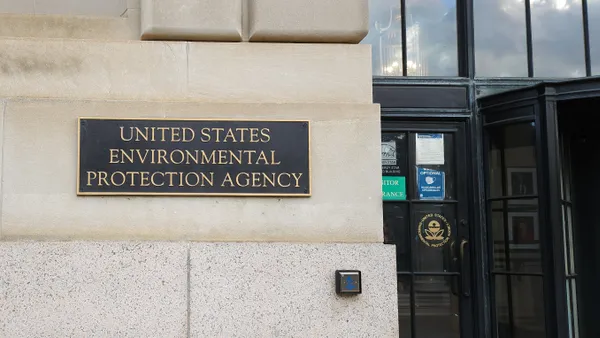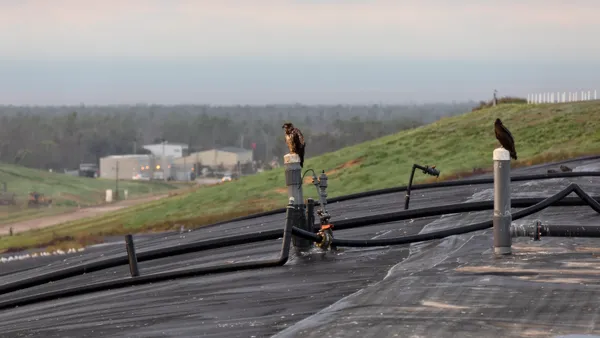Dive Brief:
- Since Kentucky's Big Run Landfill stopped accepting shipments of waste via rail in April, the number of odor complaints has dropped significantly, as reported by The Daily Independent. Last year, there were 604 complaints between October and December. From April until now, there have been 36.
- This reduction in tonnage has also caused 60 workers to be laid off, commercial gate fees to increase by 12% and operating hours to be cut back on weekends. The site now has a cap on how much sludge it can accept as well.
- Local Boyd County has seen revenue from the site decrease as a result of these changes. Though an upcoming increase on the amount of money the county receives per ton could potentially bring in an additional $750,000 per year soon.
Dive Insight:
Big Run's "trash train" had become notorious in the area among environmental advocates for its odors and symbolism. Residents were unhappy to have waste coming from as far away as New York creating what they perceived to be an odor nuisance. Per an agreement signed by EnviroSolutions Holdings Inc. — the landfill's holding company — and other regulatory parties, the section that was accepting waste via rail has also been capped.
Striking a balance between the financial benefits of hosting a landfill and potential environmental issues has come up multiples times this year. Residents near the Seneca Meadows Landfill in upstate New York shut down plans for a rail transfer system, which would have brought in waste from New York City too, and are still working through the site's future despite receiving significant financial benefits from it. Casella has also been emphasizing the financial benefits it provides to host communities near multiple landfills, though some have been more receptive than others.
While it's popular to talk about reducing interstate waste shipments or creating "zero waste" cities, it's unlikely that the current system will change in the near future. With a limited network of waste-to-energy facilities, dwindling capacity in certain regions and abundant capacity on a national level, some states are bound to keep receiving more waste than others.













